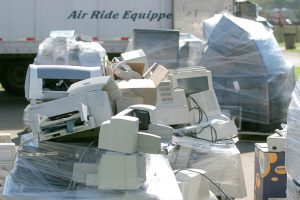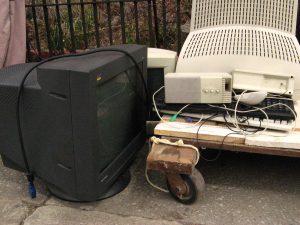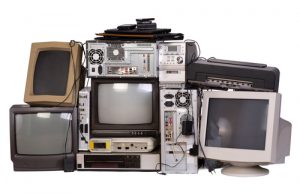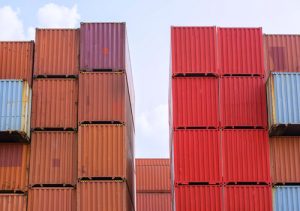 Many developments related to the Chinese recycling import market have taken place in recent weeks. The following is a look at key updates related to scrap materials, including from electronics.
Many developments related to the Chinese recycling import market have taken place in recent weeks. The following is a look at key updates related to scrap materials, including from electronics.

 Many developments related to the Chinese recycling import market have taken place in recent weeks. The following is a look at key updates related to scrap materials, including from electronics.
Many developments related to the Chinese recycling import market have taken place in recent weeks. The following is a look at key updates related to scrap materials, including from electronics.

A sample of products containing bromine, as found by researchers.
A researcher has found black e-plastics are being recycled into a variety of household applications, despite still containing additives that he says could be hazardous.

A recently released state program report provides insights into the changing composition of end-of-life electronics. It also shows which processors gained and lost weight allocations last year.
 Research partially funded by a prominent IT asset disposition company led to the development of a non-toxic method for recycling e-plastics.
Research partially funded by a prominent IT asset disposition company led to the development of a non-toxic method for recycling e-plastics.

Credit: Nerijus Juras/Shutterstock
A North American recycling operation will open an e-plastics-focused facility in response to Chinese import restrictions.

With the value of e-plastics plummeting and a major export market crumbling, North American firms are scrambling to identify ways to manage the material.
 An initiative in Europe will work to overcome obstacles to the closed-loop recycling of plastics from electronics and appliances.
An initiative in Europe will work to overcome obstacles to the closed-loop recycling of plastics from electronics and appliances.
 An initiative funded by the federal government could help solve a key materials recovery issue in e-scrap.
An initiative funded by the federal government could help solve a key materials recovery issue in e-scrap.
 Chinese authorities say the country will prohibit some grades of recovered plastic and other materials from being imported by the end of 2017. Although the announcement doesn’t list e-scrap materials specifically, one trade group anticipates more materials will be restricted in the future.
Chinese authorities say the country will prohibit some grades of recovered plastic and other materials from being imported by the end of 2017. Although the announcement doesn’t list e-scrap materials specifically, one trade group anticipates more materials will be restricted in the future.
